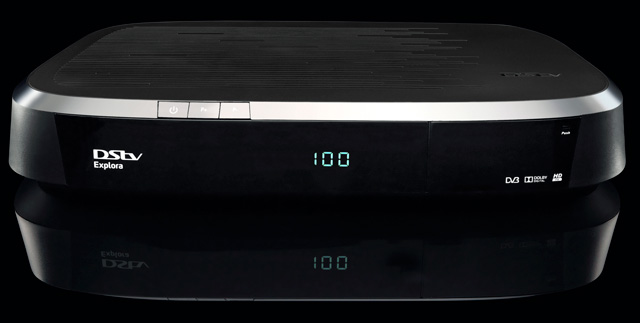
DStv Digital Media CEO John Kotsaftis has confirmed that MultiChoice will open a data pipe on the DStv Explora personal video recorder (PVR) decoder by 20 November, paving the way for consumers to be able to watch video-on-demand (VOD) services via the Internet.
The company will sell a Wi-Fi device, called the DStv WiFi Connector, allowing subscribers to connect to the Ethernet port on the Explora, opening up the box for online VOD for the first time. Consumers will also be able to connect directly using an Ethernet cable.
Until now, Explora users have only been able to use the PVR to watch on-demand and catch-up services pushed via satellite to the machine’s hard drive. This has meant that the available material has been limited by the size of the storage in the decoder.
Consumers will be able to store up to 25 VOD titles downloaded from the Internet, but the number of titles available in the cloud will be far larger.
Consumers will not be able to stream the content for now — instead having to download content fully before viewing it — but the plan is to offer streaming from the second quarter of 2015.
“The first version will be download-only, to get around the download challenges [with South African broadband] and to manage the quality. We are scared to launch this en masse when we can’t control the network. Those are some of the challenges we are trying to figure out.”
Up to 300 titles, or about 300 hours of content, will be available at launch through the online VOD service, which will be called Catch Up Plus. Box sets will be included in the catalogue.

Meanwhile, Kotsaftis says that MultiChoice will never attempt to prosecute anyone in South Africa subscribing to international streaming services such as Netflix and Hulu, which don’t operate in the country.
Many South African consumers — estimated to be in the tens of thousands — use services such as Media Hint and UnoTelly to circumvent region restrictions imposed by streaming video service providers.
Kotsaftis says it’s not clear if it’s legal or not for South Africans to watch Netflix and similar services. What is clear, he says, is that these companies are breaking the law when they allow access to services to consumers in markets for which they haven’t purchased content distribution rights.
“If Netflix accepts your credit card from this territory, they are breaking the law because they haven’t paid for the rights to distribute content in this market,” says Kotsaftis. “What’s happening now is there are multiple studios chasing Netflix to say, ‘You have to shut that down.’” — (c) 2014 NewsCentral Media




